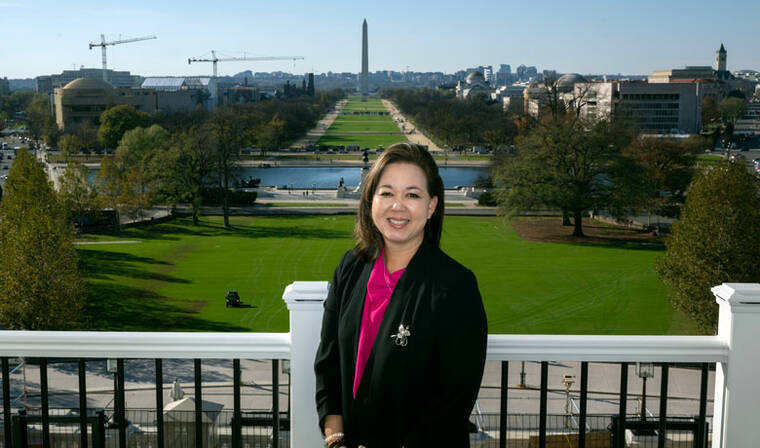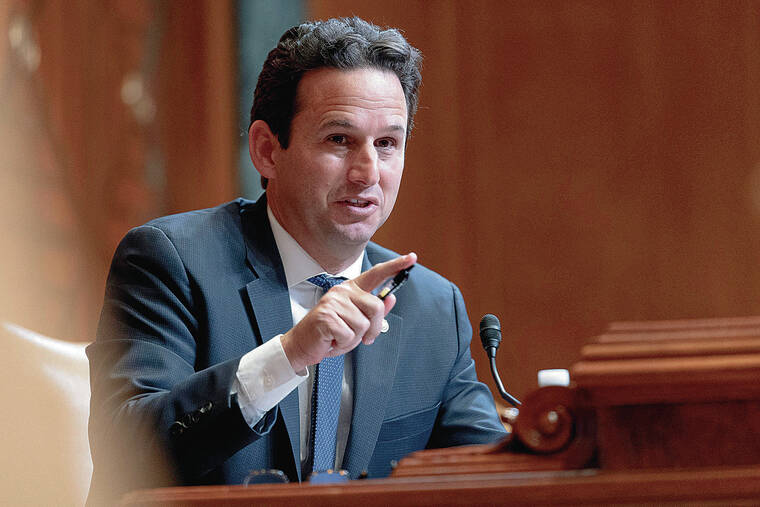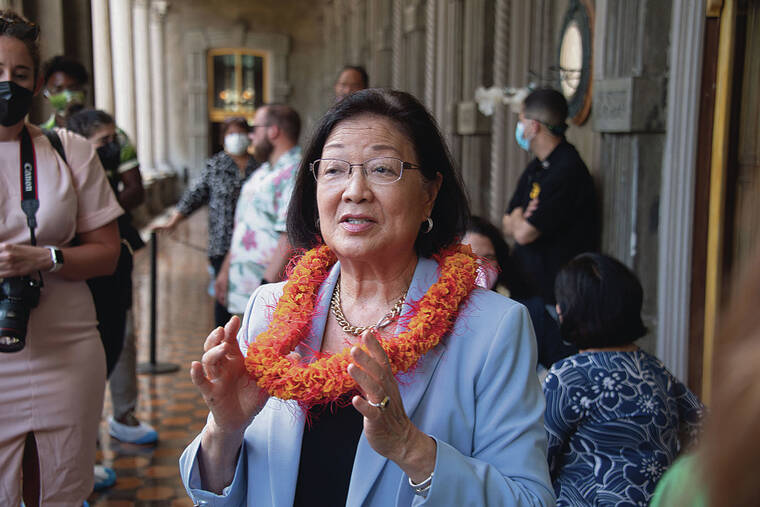Three Hawaii congressional delegation members assailed the U.S. Supreme Court ruling Thursday that struck down affirmative action policies at two major American colleges, with Sen. Mazie Hirono blasting the ruling as “shortsighted and detached from reality.”
Meanwhile, the public University of Hawaii, and private Hawaii Pacific University and Chaminade University, on Thursday affirmed their continued commitment to maintaining their high student diversity levels.
“Affirmative action policies have helped colleges and universities across our country cultivate more diverse student bodies,” Hirono said in a statement. “These commonsense policies recognize that diversity on campuses benefits all students, and help to advance racial equity.
“But once again, this extreme Supreme Court has taken our country backwards. Given our country’s long history of racial discrimination and the stark racial inequality that continues to this day, for justices to focus on whether the benefits of diversity can be measured precisely is shortsighted and detached from reality.”
Sen. Brian Schatz said, “This misguided ruling undermines the decades of progress we’ve made, but the fight is not over. Our march toward racial justice goes on.”
Rep. Jill Tokuda criticized the court’s decision as “heartbreaking and enraging. It ignores this country’s history and the barriers that are still present in our society ensuring everyone does not have equal opportunities.”
UH President David Lassner called the ruling “beyond disappointing.” A new strategic plan for UH approved in late 2022 continues to commit UH “to diversity and equity as foundational principles,” he said.
At UH Manoa the student population of just over 19,000 breaks out into rounded percentages as
58% Hawaii students, 36% out-of-state/U.S. national
students and 7% international students. As of fall 2022 they were 33% Asian, 28% Caucasian, 18% Native Hawaiian or other Pacific
Islander, 17% multiracial, 2% Hispanic, 2% Black or African American, 1% American Indian or Alaska Native.
“We are now analyzing the Supreme Court ruling and will need to determine if any changes will be required to adhere to the ruling while maintaining our commitments to diversity and equity to meet the
educational and workforce needs of Hawaii,” Lassner added.
HPU serves students from all 50 states and over 60 countries, university spokesperson Gregory
Fischbach said. For the
past seven years, about
80% of HPU’s population has identified as “non-white,” with the second-highest category identifying as “two or more races,” he said. HPU students break out as 29% Asian, 15% Native Hawaiian or other Pacific Islander,
6% African American, 4% American Indian or Alaskan Native, 10% Hispanic, 12% nonresident alien, 22% white and 2% race/ethnicity unknown.
Chaminade President Dr. Lynn Babington in a statement called the court ruling “more than disappointing
as the decision ignores the more-than-apparent effects of continued racism in our society.”
The ruling will have little effect on Chaminade’s admissions policies and processes since race is not considered in admissions, Babington said. “The large majority of our students are from Hawaii and represent the rich mosaic of
Hawaii’s citizens. In fact, Chaminade University is one of the most diverse universities in the country,” she said.






